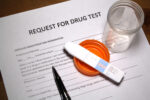Understanding Reverse Tolerance to Drugs and Alcohol

In substance use and addiction, the phenomenon of reverse tolerance, also known as “drug sensitization,” contradicts the more commonly known concept of tolerance, in which increased amounts of a substance are needed to achieve the same effect.
What is Reverse Tolerance?
Reverse tolerance, or drug sensitization, occurs when a smaller amount of a substance produces a greater effect than previously experienced with larger amounts. This phenomenon can be particularly dangerous as it increases the risk of overdose and other adverse effects from lower quantities of the substance.
How Does Reverse Tolerance to Drugs and Alcohol Work?
The mechanism behind reverse tolerance is not entirely understood and may depend on the substance in question. However, it generally involves changes in the brain and body’s response to the substance. For example, in the case of alcohol, reverse tolerance can occur due to liver damage. A damaged liver has a reduced capacity to metabolize alcohol, leading to higher blood alcohol concentrations from smaller amounts of alcohol consumption. Similarly, with certain drugs, long-term use can alter the brain’s chemistry and its receptors’ sensitivity, making them more responsive to the substance.
Recognizing the Signs of Reverse Tolerance
Identifying reverse tolerance involves noticing when the effects of a substance become more pronounced without increasing the dosage. Key signs include experiencing intoxication or the drug’s effects more quickly and intensely than usual, even with reduced consumption. Individuals and their loved ones must be aware of these signs, as reverse tolerance can significantly elevate the risk of overdose.
The Implications of Reverse Tolerance
The development of reverse tolerance is one example of the unpredictable nature of drug and alcohol use and the potential for serious health risks. For individuals struggling with addiction, reverse tolerance can complicate recovery efforts, as traditional understandings of tolerance and dosage levels are upended.
Addressing Reverse Tolerance
Recognizing and addressing reverse tolerance is critical in the context of substance use treatment and recovery. It necessitates a comprehensive approach that includes medical supervision, especially during detoxification, to manage the risks associated with sudden changes in substance sensitivity. Treatment plans must be adaptable, considering the unique physiological and psychological factors at play.
Reverse tolerance to drugs and alcohol represents a critical, albeit less understood, aspect of addiction science. It challenges the conventional wisdom on substance use and tolerance, highlighting the body’s complex and sometimes unpredictable response to long-term exposure. Awareness and understanding of reverse tolerance are essential, not only for those experiencing it but also for healthcare providers and support networks, to ensure the safety and effectiveness of treatment and recovery efforts. If you or someone you know may be experiencing signs of reverse tolerance, seeking professional guidance and support is a crucial step towards understanding and addressing the issue safely.









